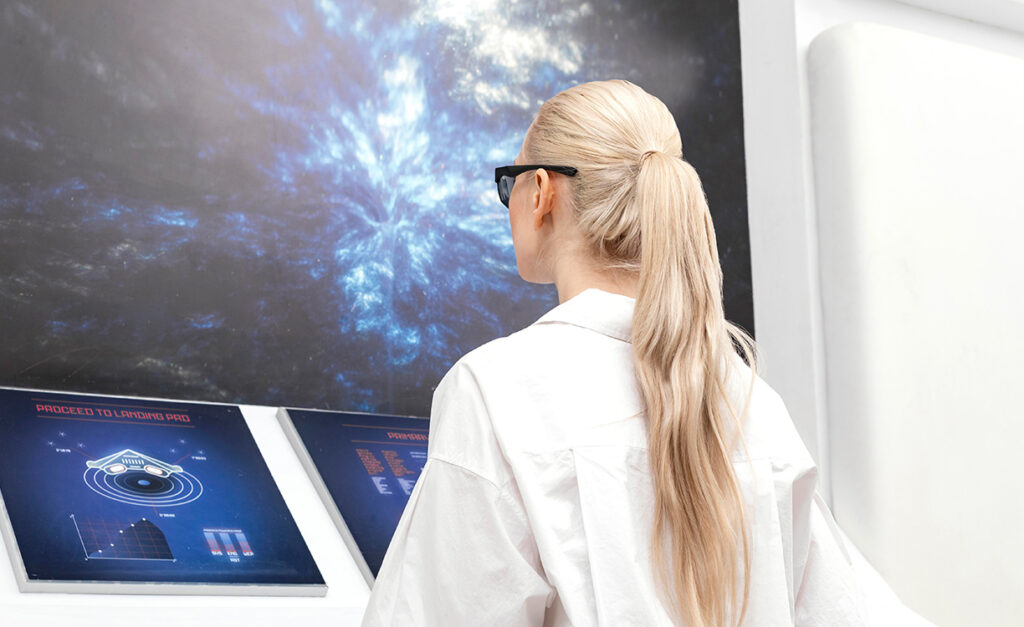Subtotal $0.00
Imagine solving in seconds what today’s supercomputers would take centuries to crack. That’s the promise of quantum computing, and in 2025, it’s moving from the lab into the real world.
From drug discovery and financial modeling to cybersecurity and artificial intelligence, quantum computing is starting to transform industries. In this blog, we’ll break down what quantum computing is, how it works, what progress we’ve made in 2025 — and what it all means for the future.
What Is Quantum Computing?
Unlike traditional computers that use binary bits (0s and 1s), quantum computers use quantum bits or qubits, which can be both 0 and 1 at the same time thanks to a phenomenon called superposition.
They also use entanglement, where qubits are linked in a way that changing one affects the other — even across large distances. This allows quantum systems to process exponentially more data than classical computers.
In short: Quantum computers don’t just try one solution at a time — they explore all possibilities at once.
Quantum Computing in 2025: Where Are We Now?
We’re still in the early commercial era, but the progress is real. In 2025:
- IBM released a 1,121-qubit quantum processor called Condor
- Google Quantum AI made breakthroughs in quantum error correction
- D-Wave offers cloud-based quantum services for optimization problems
- IonQ and Rigetti are shipping quantum chips for enterprise research
Many startups and governments are investing in quantum-as-a-service (QaaS) platforms, making quantum computing more accessible.
Quantum & Cybersecurity: A Double-Edged Sword
One of the biggest implications of quantum computing is its ability to break modern encryption.
Why it matters:
Today’s RSA and ECC encryption rely on the difficulty of factoring large numbers — a task quantum computers can solve in minutes using Shor’s Algorithm.
The solution:
Welcome to the era of Post-Quantum Cryptography (PQC). In 2025, many governments and corporations are already upgrading their encryption systems with quantum-resistant algorithms to prepare for “Q-Day” — when quantum machines can crack classical encryption.

Quantum in Healthcare & Drug Discovery
In traditional computing, simulating molecular interactions is computationally expensive and slow. Quantum computers can model:
- Protein folding
- DNA sequencing
- Drug interactions
This means faster drug discovery and personalized medicine based on your genetic code. Pharma companies are already using quantum simulators to accelerate trials.
Quantum Finance: Smarter Forecasting & Risk Analysis
Quantum algorithms help financial institutions perform:
- Risk modeling
- Fraud detection
- Portfolio optimization
Imagine running millions of simulations per second to detect market trends or black swan events. Major banks like JPMorgan, HSBC, and Goldman Sachs are already testing quantum financial models.
Quantum & Artificial Intelligence
Quantum computing can supercharge machine learning. Quantum-enhanced AI allows:
- Faster training of deep learning models
- Better pattern recognition
- Optimization at scale
In 2025, quantum machine learning is being used in areas like:
- Autonomous vehicles
- Predictive healthcare
- Smart logistics
Industries Adopting Quantum in 2025
Quantum isn’t just for scientists anymore. Industries actively investing in quantum include:
| Industry | Quantum Use Cases |
| Healthcare | Drug discovery, genomics |
| Finance | Risk analysis, fraud detection |
| Cybersecurity | Post-quantum encryption |
| Logistics | Route optimization |
| Energy | Battery modeling, grid simulation |
| AI | Faster model training |
Can You Use Quantum Computing Today?
Yes to an extent.
In 2025, access to quantum hardware is mainly through cloud platforms like:
- IBM Quantum Experience
- Google Cirq
- Microsoft Azure Quantum
- Amazon Braket
These let developers experiment with quantum circuits using simulators and small-scale quantum processors.
Common Myths About Quantum Computing
❌ “Quantum computers will replace classical computers.”
➡️ Not true. They complement classical machines and are used for very specific problems.
❌ “Quantum computers are already faster at everything.”
➡️ Nope. They’re only faster at specific optimization and factorization tasks.
❌ “Only physicists can understand quantum computing.”
➡️ Not anymore. With tools like Qiskit and Cirq, even developers can start building basic quantum programs.
What’s Next in Quantum Tech?
By the end of 2025, we’re expecting:
- More stable qubits with longer coherence times
- Quantum error correction at scale
- More commercial use cases in logistics and materials science
- Better hybrid systems (classical + quantum)
Quantum supremacy where a quantum computer consistently outperforms classical computers is inching closer.
Final Thoughts
Quantum computing is one of the most transformative technologies of our time. While it’s not fully mainstream yet, the groundwork laid in 2025 will shape everything from how we secure data to how we discover new medicines.
At Geeksandinfo.com, we’ll keep you updated on quantum breakthroughs that matter — in plain English.Whether you’re a tech enthusiast, a developer, or just curious, the quantum age has begun.














